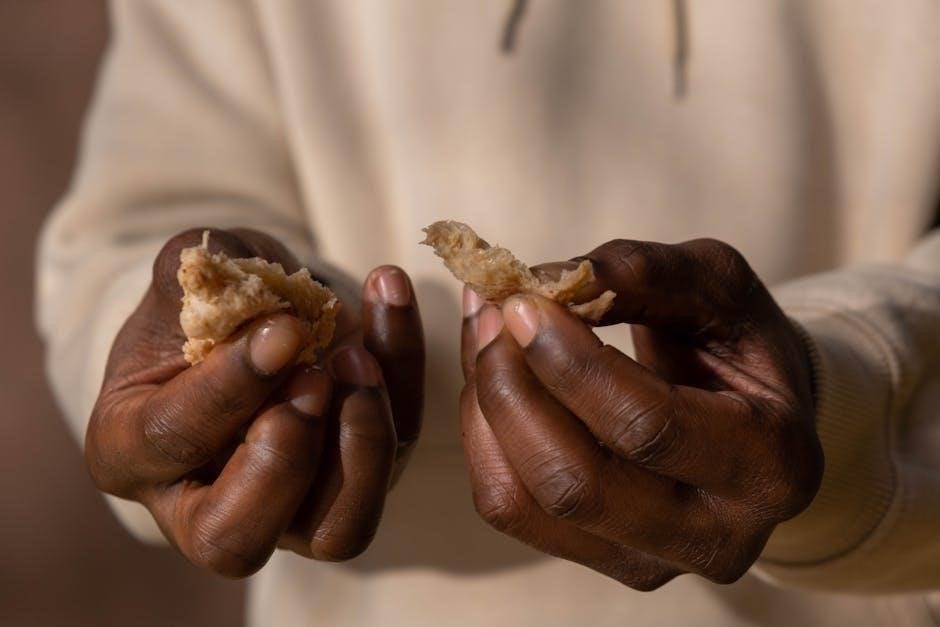Glass’s Guide is a trusted resource for valuing static caravans, providing detailed pricing and specifications. It helps owners and buyers determine fair market values, ensuring transparency in transactions.
1.1 What is Glass’s Guide?
Glass’s Guide is a trusted resource for valuing static caravans, providing detailed pricing and specifications. It helps owners and buyers determine fair market values, ensuring transparency in transactions. Widely recognized in the industry, the guide offers accurate data, making it essential for assessing caravan values, whether for sale, insurance, or maintenance purposes.
1.2 Importance of Glass’s Guide for Static Caravans
Glass’s Guide is essential for determining accurate valuations of static caravans, ensuring transparency for buyers and sellers. It aids in insurance assessments, compliance checks, and maintenance decisions. By providing reliable data, the guide helps owners and dealers make informed decisions, safeguarding investments and ensuring fair market transactions. Its insights are invaluable for the static caravan industry, promoting trust and clarity.
Understanding Static Caravan Valuation
Static caravan valuation involves assessing factors like age, condition, and market demand. Glass’s Guide provides standardized valuations, helping owners and buyers determine fair market prices accurately.
2.1 Factors Affecting Static Caravan Value
Age, condition, and original purchase price significantly influence static caravan value. Additionally, market demand, model popularity, and upgrades or customizations play crucial roles. Exterior and interior wear, damage, and needed repairs also impact valuation. Environmental factors and location can affect depreciation rates, while seasonal fluctuations may influence current market worth.
2.2 How Glass’s Guide Determines Valuation
Glass’s Guide uses comprehensive data, including sales records, market trends, and manufacturer specifications, to determine static caravan valuations. Expert analysts assess condition, age, and custom features, ensuring accurate pricing. The guide also considers regional demand and environmental factors, providing a reliable benchmark for buyers, sellers, and insurers to establish fair market values.

Maintenance and Care of Static Caravan Glass
Regular cleaning with mild detergents and avoiding high-pressure washers prevents damage. Inspect seals and frames for wear to maintain thermal efficiency and prevent leaks over time.
3.1 Cleaning and Upkeep Tips
Avoid using high-pressure washers or steam cleaners, as they can damage seals. Clean glass with mild detergents and microfiber cloths to prevent scratches. Regularly inspect for cracks or chips and address them promptly. For optimal clarity, clean windows every two weeks. Use a dry cloth to wipe down frames and seals, ensuring they remain watertight. Seasonal deep cleans can prevent long-term damage and maintain visibility.
3.2 Repairing Damaged Glass
Minor scratches on static caravan glass can be buffed out with specialized kits. For deeper cracks or chips, professional repair is essential to prevent further damage. Replacement may be necessary if the glass is extensively cracked or shattered, ensuring safety and maintaining the caravan’s structural integrity. Always use approved repair services to uphold warranty conditions and safety standards.

Types of Glass Used in Static Caravans
Static caravans use double-glazed, tempered, and laminated glass for insulation, strength, and safety. These types ensure energy efficiency, durability, and protection against breakage, enhancing overall comfort and security.
4.1 Double-Glazed Windows
Double-glazed windows in static caravans provide excellent thermal insulation, reducing heat loss and noise. They consist of two panes of glass separated by a gap, often filled with inert gas, enhancing energy efficiency. This design minimizes condensation and protects against UV rays, ensuring clearer views and a more comfortable living space. Regular maintenance is crucial to preserve their functionality and aesthetic appeal.
4.2 Tempered and Laminated Glass
Tempered glass, also known as toughened glass, is strengthened for safety, shattering into blunt fragments upon impact. Laminated glass, featuring layers bonded with interlayers, holds together when broken, preventing shattering. Both types enhance security and durability in static caravans, reducing injury risks and protecting against break-ins and weather damage, making them essential for windows and doors in caravan construction.
Insurance Considerations for Static Caravan Glass
Insurance policies often cover glass damage, including breaks and cracks. Comprehensive coverage is essential for protecting against weather-related incidents or accidental damage, ensuring financial security for repairs or replacements.
5.1 Coverage for Glass Damage
Insurance policies typically cover glass damage, including shattered windows and doors. Coverage extends to accidental breaks, vandalism, and weather-related incidents. Some policies may also include protection for seals and frames, ensuring comprehensive repair or replacement. It’s crucial to review policy details to understand the scope of coverage and any potential limitations or exclusions for static caravan glass.
5.2 Tips for Reducing Insurance Costs
To lower insurance costs, install high-quality security systems and ensure regular maintenance of glass components. Compare policies to find coverage that suits your needs without unnecessary extras. Opting for comprehensive coverage with a higher excess can also reduce premiums. Additionally, ensuring compliance with safety standards like EC Whole Vehicle Type Approval may qualify you for discounts, helping you save on insurance costs.
Legal and Compliance Standards
Static caravans must adhere to legal standards, including EC Whole Vehicle Type Approval, ensuring compliance with rigorous design and manufacturing regulations for safety and quality.
6.1 EC Whole Vehicle Type Approval
Static caravans meeting EC Whole Vehicle Type Approval comply with strict EU design and manufacturing standards. This ensures safety, structural integrity, and quality, including glass components, adhering to regulatory requirements for optimal performance and durability.
6.2 Safety Regulations for Caravan Glass
Safety regulations for caravan glass ensure durability and occupant protection. Glass must meet standards like BS EN 12150-1 for tempered glass and BS 6206 for laminated glass. These regulations ensure glass withstands impacts and environmental stresses, minimizing injury risks. Compliance is mandatory for static caravans to meet legal and safety requirements, ensuring reliable performance and user safety.
Frequently Asked Questions
This section addresses common queries about static caravan glass, covering maintenance, damage prevention, and valuation. It provides clear answers to help owners manage and protect their caravans effectively.
7.1 Common Issues with Static Caravan Glass
Static caravan glass often faces issues like condensation, scratches, and seal failures. High-pressure washers can damage seals, while environmental factors like extreme temperatures may cause glass to expand or contract, leading to cracks. Regular maintenance and avoiding harsh cleaning methods are essential to prevent these problems and ensure longevity.
7.2 Best Practices for Glass Maintenance
To maintain static caravan glass, avoid using high-pressure washers or steam cleaners, as they can damage seals. Instead, clean with mild detergents and soft cloths. Regularly inspect for cracks or chips and address them promptly. Apply protective films to prevent scratches and ensure proper ventilation to reduce condensation. Schedule annual professional inspections to maintain optimal condition and longevity.

Eco-Friendly Glass Solutions
Eco-friendly glass solutions for static caravans include energy-efficient options like low-e coatings and recycled materials, reducing environmental impact while maintaining durability and performance.
8.1 Energy-Efficient Glass Options
Energy-efficient glass options for static caravans include low-e coatings, double-glazed windows, and thermally insulated units. These technologies minimize heat transfer, reduce UV rays, and enhance energy savings. Double-glazed windows, for instance, trap warm air in winter and keep heat out in summer, lowering energy consumption. Additionally, using recycled glass materials supports sustainability while maintaining performance. These solutions help caravan owners reduce their environmental impact and lower energy costs.
8.2 Sustainable Glass Materials
Sustainable glass materials for static caravans include recycled glass, which reduces environmental impact by minimizing raw material use. Low-e coatings and tempered glass also enhance energy efficiency while maintaining durability. These eco-friendly options lower carbon footprints and support long-term sustainability goals without compromising performance or aesthetics, making them ideal for environmentally conscious caravan owners seeking cost-effective, eco-friendly solutions.
Regional Variations in Static Caravan Glass Standards
Regional variations in static caravan glass standards reflect differing safety and environmental regulations across countries. The EC Whole Vehicle Type Approval ensures compliance with strict European standards, while other regions adapt based on climate and local requirements.
9.1 UK vs. European Standards
UK and European standards for static caravan glass differ slightly due to regulatory frameworks. The UK, post-Brexit, aligns closely with European norms but has introduced specific requirements. European standards emphasize energy efficiency and safety, while the UK focuses on durability and weather resistance. Both mandate compliance with safety regulations, ensuring glass quality and performance meet rigorous testing criteria for optimal protection and longevity.
9.2 Impact of Climate on Glass Selection
Climate significantly influences glass selection for static caravans. In colder regions, double-glazed or insulated glass is preferred for energy efficiency. Coastal areas may require glass with enhanced durability to withstand saltwater exposure. High-temperature zones often use reflective or low-E glass to reduce heat absorption. Ensuring the right glass type for the climate enhances comfort, durability, and overall performance of the caravan.

Future Trends in Static Caravan Glass Technology
Innovative glass technologies, such as self-healing coatings and smart glass, are emerging. These advancements promise improved durability, energy efficiency, and aesthetic appeal for static caravans.
10.1 Innovations in Glass Manufacturing
Recent advancements in glass manufacturing include self-healing coatings and energy-efficient materials. These innovations enhance durability, reduce maintenance, and improve thermal performance for static caravans, offering modern solutions.
10.2 Smart Glass Technology for Caravans
Smart glass technology offers innovative solutions for static caravans, featuring glass that can change tint with electricity. This enhances privacy, reduces glare, and improves energy efficiency. Advanced coatings also block UV rays, protecting interiors. Such technologies are revolutionizing caravan living, providing modern, adaptive, and sustainable solutions to meet the evolving needs of static caravan users and owners.
Resources and Further Reading
Explore Glass’s Guide publications and manufacturer recommendations for detailed insights. Visit FAQs, user guides, and videos for additional information. Check the Info Hub for quick, reliable solutions.
11.1 Glass’s Guide Publications
Glass’s Guide offers comprehensive publications for static caravan enthusiasts. These include detailed valuation guides, maintenance tips, and technical specifications. Users can access PDF versions, user manuals, and FAQs. The guides provide insights into caravan care, valuation trends, and industry standards, ensuring owners and buyers make informed decisions. Regular updates keep the information current and relevant.
11.2 Manufacturer Recommendations
Manufacturers provide specific guidelines for static caravan maintenance. Regular servicing by authorized workshops is essential for warranty validity. Cleaning tips include avoiding high-pressure washers to prevent seal damage. Compliance with EC Whole Vehicle Type Approval ensures safety and quality standards. Always reference the owner’s manual for model-specific care instructions to maintain performance and longevity of your static caravan.
